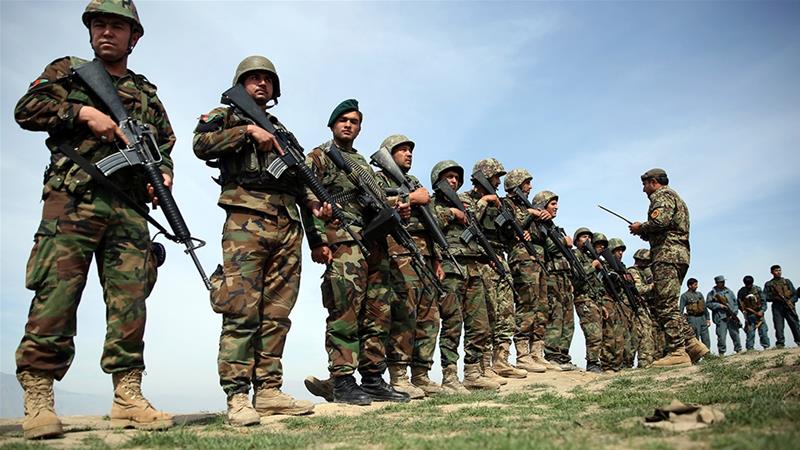
Afghan forces killed as gov't urges Taliban to extend ceasefire
Afghan government says efforts under way to extend the ceasefire as Taliban delegation arrives in Kabul for talks.
At least 14 members of the Afghan army have been killed in a Taliban attack as the Afghan government said the Eid ceasefire was not over yet.
The Ministry of Defence said on Friday members of the Afghan army were killed in the province of Paktiya. Three others were also wounded in the attack that was also confirmed by the Taliban.
More:
A day earlier, the Taliban killed at least 14 people from the security forces in northern Parwan and western Farah provinces.
Afghanistan's National Security Adviser (NSA) spokesperson Javid Faisal nevertheless wrote in a tweet on Friday that the "detente" which started during the Eid holiday, marking the end of Ramadan, was continuing.
"The ceasefire is not over yet; there have been violations because it is a complicated technical process that requires good coordination between both sides," Faisal said.
Earlier, Faisal had urged the Taliban to extend the three-day ceasefire, which came into effect on Sunday to mark the Muslim festival of Eid al-Fitr.
"It is important to extend the ceasefire and, to avoid bloodshed, the Afghan government is ready to extend it," the NSA spokesman told a news conference on Tuesday.
Despite the violence, a prisoner swap crucial to the start of peace talks between the warring sides in Afghanistan has continued.
Taliban delegation in Kabul
The Taliban, which launched an armed rebellion after it was toppled from power by a US-led invasion in 2001, has remained silent on government appeals for an extension of the ceasefire.
Meanwhile, a five-member Taliban delegation arrived in Kabul on Thursday to work with a government team on the release of prisoners on both sides, spokesmen for both sides said on Twitter.
A US-Taliban agreement signed in February in Qatar's capital, Doha, stipulated that the Afghan government would release up to 5,000 Taliban prisoners while the Taliban would free about 1,000 Afghan security forces personnel.
But the prisoner swap has been delayed as Afghan President Ashraf Ghani refused to release all 5,000 Taliban prisoners at once. So far, Kabul has freed about 3,000 Taliban inmates, while the armed group had released about 300 Afghan security forces it held captive.
On Tuesday, the Afghan government freed 900 Taliban members from prison, the biggest such release yet, as part of a prisoner swap under the Doha agreement.
Following their release, the Taliban said on Thursday it had released 80 more Afghan security forces. That number brought the total number of released prisoners by the Taliban to 347.
The delegation will also discuss the announcement of the long-delayed intra-Afghan talks, which was also one of the elements of the Doha agreement, with the government.
Violence after ceasefire ends
Skirmishes between Taliban fighters and Afghan security forces recommenced following the end of the three-day truce at midnight on Tuesday.
"Taliban attacked checkpoints in the Syagird district of central Parwan province late on Wednesday night," a spokeswoman of the province's governor said.
Taliban spokesman Zabiullah Mujahid, meanwhile, said the government had carried out air raids on Wednesday in the southern province of Zabul despite the group's fighters not having carried out any attacks.
As per the February agreement, the US is expected to withdraw its forces after nearly 19 years in Afghanistan, leaving the Afghan government to negotiate a peace deal with the armed group to end the war.
US President Donald Trump on Tuesday renewed his desire for a full military withdrawal from Afghanistan but added that he had not set a target date.
"We're there 19 years and, yeah, I think that's enough ... We can always go back if we want to," Trump told a White House news conference.
The US has already begun to withdraw its forces. By the second quarter of 2021, all foreign forces are supposed to withdraw, ending the US's longest war.